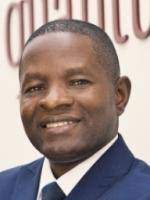The African Development Bank’s (AfDB’s) Acting Chief Economist and Vice President, Prof. Kevin Urama, has said that Africa is losing between five percent to 15 percent of its Gross Domestic Product (GDP) per capita growth to climate change and its negative impacts on the countries in the continent.
Urama, was quoted in a statement posted on the development finance institution’s website yesterday as making this disclosure at a panel discussion titled ‘African Countries Ownership in Determining Climate Agenda’ on the sidelines of Egypt International Cooperation Forum (Egypt-ICF 2022) on Sept. 7 in Cairo.
Based on the devastating impacts of the environmental hazards, he said that Africa needed USD1.6 trillion between 2022 and 2030 to meet its nationally determined contributions (NDCs).
The NDCs, which are submitted by countries under the Paris Agreement of the United Nations Framework Convention on Climate Change, entail efforts by each country to reduce national emissions and adapt to the impacts of climate change.
Urama said: “Collectively, African countries received only 18.3 billion dollars in climate finance between 2016 and 2019. This results in a climate finance gap of up to 1288.2 billion dollars annually from 2020 to 2030.
“Climate change affects Africa severely, while the continent contributes to only three per cent of global emissions”, he added.
The development finance expert reiterated the need for the global community to meet its 100 billion dollars commitment to help the developing countries and African economies to mitigate the impacts of climate change and to adapt to it.
He further pointed out that “investing in climate adaptation in the context of sustainable development is the best way to cope with the climate change impacts; gas must remain included in the continent’s plan for the gradual transition to clean energy.”
Urama affirmed that Africa had great potential in terms of green investment opportunities that the organized private sector (OPS), including banks could explore for investment gains.






